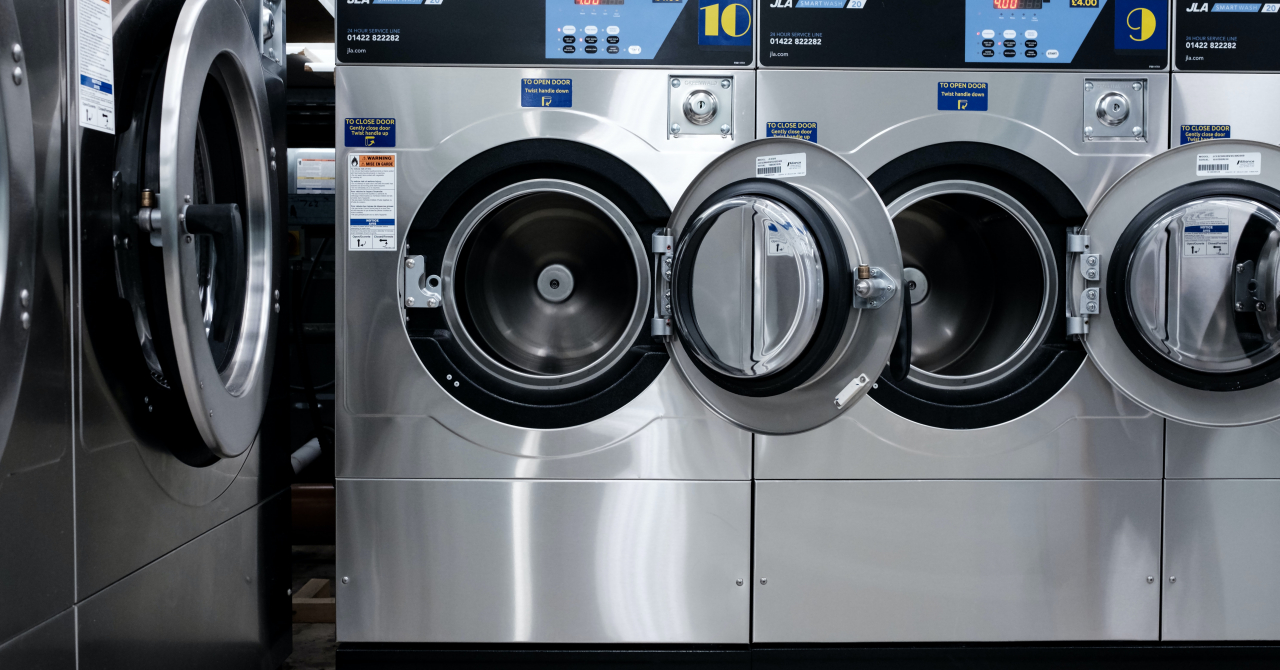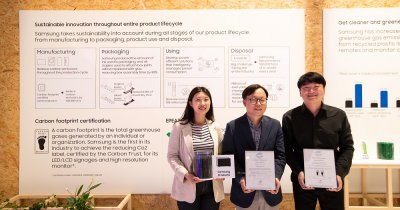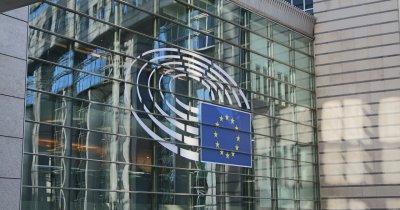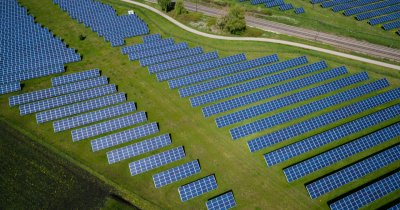The teams worked together in order to find solutions for the most urgent environmental challenges related to climate change, water management and circular economy.
Romania opened the hackathon with a panel on the topic of sustainability in the value chain, live from the Arctic factory in Ulmi, the first Industry 4.0 production unit in Romania and one of the most modern in the world.
Gabriel Eremia - Marketing & Product Management Arctic Director who hosted the event, Ümit Gülbay - Factory Director Ulmi Washing Machine Plant, Victor Spiță - Industry X Manufacturing & Operations Lead Eastern Europe at Accenture and Alexandru Laibăr - Executive Director of the Coalition for Circular Economy, have highlighted the role of digitalization in the transition to a circular economy.
Gabriel Eremia started the discussion by addressing the importance of climate action, as the European Union pledged to achieve climate neutrality by 2050, which means that the whole European society and economy will need to make changes in order for these goals to become a reality.
Additionally, the European Commission also recently presented a package of proposals under the European Green Deal in order to ensure the development of sustainable products and to allow for the adoption of circular economy models.
Alexandru Laibăr started off by explaining what the Coalition for Circular Economy in Romania represents, which is one of the leading organizations that ensures that companies adopt a circular economy model on a country wide level.
"We have over 60 companies that are making the transition from linear to circular, but we also have highly reputable Romanian specialists who are dealing in circular economy, sustainability and environmental issues. Basically, we see ourselves as an incubator or an accelerator for the circular economy in Romania", Alexandru explained.
In his vision, it is important for a company to shift from a linear model of production to a circular one since natural resources are scarcely available but also due to the fact that we have many commodities that we can use, such as metal, glass or plastic.
When it comes to the sustainability of a product, Alexandru says that "first of all, we should talk about eco-design, which is a concept of circular economy. Eco-design starts with the project of the product, it's about how to make a repairable product, how to make spare parts with accessible prices for the consumer, how to make it easily maintainable and also, how to use cleaner and cheaper and more effective materials."
"You have a business point of view for that, for a sustainable product from your site, which should be remanufactured, which has a low carbon footprint and in which production water and energy are used very efficiently", he added.
The results of such a product, in his opinion, mean that consumers will view it as a sustainable product that has a long life, a low carbon footprint, it is energy efficient and "more and more consumers are starting to ask the producers what is your content of recycled materials."
At the same time, Alexandru noticed that consumers no longer want planned obsolescence, giving the classic example of a product breaking down shortly after the warranty expired.
"Eco-design always leads to sustainability, because in the lifecycle of any product you are starting to ask yourself "where am I taking the materials from?" And if the answer is "I am taking the materials that are already extracted and available on the market", you are making the right choice, because you are choosing materials who already have been extracted from the natural resources, you are not affecting the ecosystem anymore, you are using materials that can be already in a certain stage of processing, so you are decreasing your costs and this is how you make your first step in eco-design", Alexandru explained.
Finally, he stated that "circular economy is about closing the loops, material loops, the ecological loops and why not, human consumption loops."
The Arctic washing machine factory is the only one in Romania that received the LEED Platinum certification, the highest recognition of performance in the field of sustainable production. The Ulmi plant has also been recognized by the World Economic Forum as one of the most innovative in the world, part of the Advanced 4th Industrial Revolution Lighthouse network.
 Mihai - Cristian Ioniță
Mihai - Cristian Ioniță












Any thoughts?